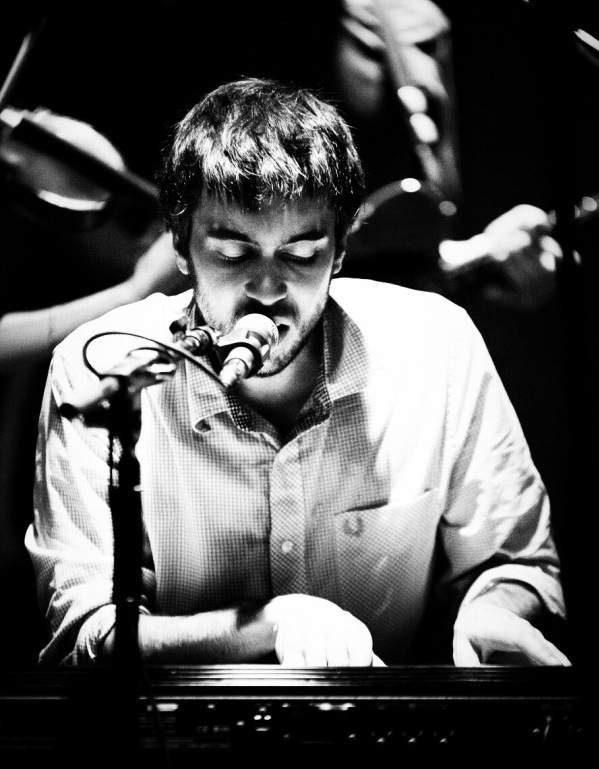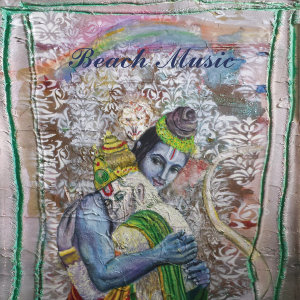Photo by DYLAN LONG
 BY JONATHAN VALANIA Alex G, aka Alex Giannascoli, is like the red-eyed unshaven love child of Olivia Tremor Control and the Beta Band drunk on early Iron and Wine, Portland-era Elliott Smith and Guided By Voices circa Vampire On Titus: pretty/sad zig-zag bedsit folk-pop chopped and screwed until blissed out and chimerical. Born and raised on the mean streets of Havertown, an inner ring suburb of Philadelphia, and bottle-fed on the mid-90s’ indie-rock of his big sister’s record collection, he started making his own music on Garageband at the tender age of 15 and pumping it into the digital ether via Bandcamp where he garnered a cult-like following. After studying English for two years at Temple University, he quit school to pursue music full time, releasing five LPs of embryonic Alex G music on sundry micro indies before signing to the UK’s Domino Recordings 2014. His star continued to rise over the course of three fuzzy-wuzzy albums of high-end lo-fi, including the brand-new House Of Sugar, which dropped in September. In advance of his now-sold out show at Union Transfer on Saturday November 30th, we got Alex on the horn.
BY JONATHAN VALANIA Alex G, aka Alex Giannascoli, is like the red-eyed unshaven love child of Olivia Tremor Control and the Beta Band drunk on early Iron and Wine, Portland-era Elliott Smith and Guided By Voices circa Vampire On Titus: pretty/sad zig-zag bedsit folk-pop chopped and screwed until blissed out and chimerical. Born and raised on the mean streets of Havertown, an inner ring suburb of Philadelphia, and bottle-fed on the mid-90s’ indie-rock of his big sister’s record collection, he started making his own music on Garageband at the tender age of 15 and pumping it into the digital ether via Bandcamp where he garnered a cult-like following. After studying English for two years at Temple University, he quit school to pursue music full time, releasing five LPs of embryonic Alex G music on sundry micro indies before signing to the UK’s Domino Recordings 2014. His star continued to rise over the course of three fuzzy-wuzzy albums of high-end lo-fi, including the brand-new House Of Sugar, which dropped in September. In advance of his now-sold out show at Union Transfer on Saturday November 30th, we got Alex on the horn.
DISCUSSED: The autumnal glories of Neil Young’s Harvest Moon; Temple University; GarageBand; his sister’s record collection and using her paintings as album cover art; collaborating with Frank Ocean; his days as a disciple of Elliott Smith; loving the short stories of Argentinian poet Silvino Ocampo; the SugarHouse Casino of the mind; working with long-time producer Jake Portrait; the miniaturized lo-fi glories of Guided By Voices; knowing Unknown Mortal Orchestra; the importance of Dusk At Cubist Castle; hearing the White Album for the first time, like, two weeks ago and how it blew his motherfucking mind.
PHAWKER: Hello, this is Jonathan Valania from Phawker, we have an interview scheduled. You clearly know this 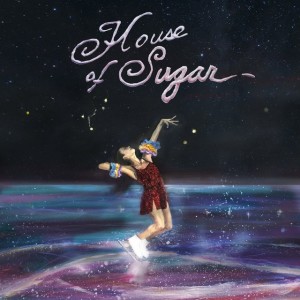 because you called me.
because you called me.
ALEX G: [laughs]
PHAWKER: So let’s get this party started. Not that much is known about you or available to know about you on the Internet, so forgive me if I ask some questions that you answered a billion times. First, you’re from Philadelphia, correct?
ALEX G: I’m from Havertown.
PHAWKER: And then you went to Temple for two years?
ALEX G: Yes.
PHAWKER: And when did you start making music, not releasing it, but when did you start making music?
ALEX G: Well I think it happened around the same time, in my early teen years, just like fourteen or fifteen. My family got a Mac computer that had GarageBand on it, with the built in recording programs. And so I would just mess around on that when I had free time, and make little beats or songs or whatever and then I’d burn ‘em on CD’s and hand them out to people and I just like if you could consider that releasing music, you know what I mean? And then when I figured out I could put stuff online I started putting stuff online. As soon as I had the chance to put stuff out there I was just doing it. Well, as I was learning how to do it.
PHAWKER: Yeah. So that would account for the fact– I was reading an AllMusic guide that you had like, twelve self-released albums before you signed to Domino? They’re probably combining a bunch of releases there, but is that roughly true? Is it there much music that you put out before you even were on a proper record?
ALEX G: I mean, I made a ton of music but I definitely wouldn’t brag about it because most of that stuff is pretty bad, you know? I shouldn’t say bad because some people like it, but a lot of that stuff is from when I was a kid, still learning how to, you know, write songs and make recordings and stuff. It was a whole learning process, and I’m still learning now, even, but a lot of that stuff is from early days.
PHAWKER: “Embryonic” may be the word for that early stuff.
ALEX G: Yeah.
PHAWKER: And you said you started out at fourteen or fifteen, and I’m guessing you’re in your early twenties now? Can I ask how old you are now?
PHAWKER: Duly noted. And can you explain to me the Sandy in parentheses thing? Why and what, and why Sandy?
ALEX G: So I used to just be Alex G., that’s what everyone called me and so I released music as Alex G., ‘cause it was my name. And there was some confusion with other people named Alex G. who are releasing music. And off the record I can’t really like, explicitly say or else I’ll get sued or something, but… [laughs] If you can leave that out, I’ll just explain it to you, why I’m being so vague. And so I had to like, change the name in some way and I really wanted to keep Alex. G. in there, so I just… one of the first songs I put online was called Sandy, and a lot of the URLs to like, BandCamp or the FaceBook page on music, that the URL had Sandy in the link, and I could put Sandy in parentheses and it would just be like a little tag. And I was hoping that people would interpret it as a silent indicator that it’s this Alex G. from Philadelphia, not the other Alex G. out there who… you know what I mean?
PHAWKER: Sure, sure. Okay, that explains it. So I’m curious, how do you write, how do you make music? My understanding is you still use GarageBand, but do you write songs, say, on a guitar, on an acoustic guitar, an electric guitar, and then record ‘em, fuck with ‘em, produce them, arrange them? Or do you start on GarageBand and make everything from scratch?
ALEX G: I usually start with the guitar or a keyboard and come up with like the template, you know, like the structure and the chords. And then I record that and all the complementary instruments and stuff come after on GarageBand like during the recording process I’m writing the other parts, you know? But the core structure I write separately, just sitting down with an instrument.
PHAWKER: And you played guitar on two Frank Ocean albums, is that correct?
ALEX G: On Endless and Blond, yeah.
PHAWKER: That’s… okay, that’s kinda blowing my mind a little bit. How did that come about?
ALEX G: Yeah, I mean it’s actually not a very exciting story. When he was making those albums a few years ago and me and my band were on tour in the UK, while he was working in the UK in London, and I just got an email randomly from him, being like “Hey, you wanna play– come by the studio and play guitar?” And I was like, Sure. And I didn’t know him, but it was nice. It was a really laid back experience, you know.
PHAWKER: And you play on a number of songs on both of those albums or just a song each or?
ALEX G: Like, a handful of them, like a couple on Blond and a couple on Endless.
PHAWKER: Crazy, man. So it kinda reminds me a little bit of like Kanye getting Bon Iver to work with him on his album, has that comparison ever occurred to you?
ALEX G: You know, I’m not that familiar with how, like, what they did together, but I mean… What makes it similar, was that just kinda out of the blue, too? I’m actually not familiar….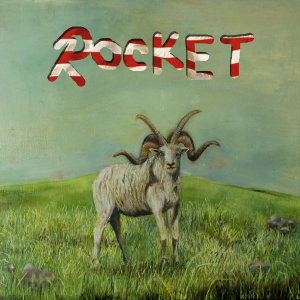
PHAWKER: It is totally out of the blue. It’s just a strange pairing on paper: somebody from the top of the hip hop game calls up the weird-beard indie rock psychedelic guy to play on his next album. You just wouldn’t think it’d be a pairing, but it is, or that it would work but it does. But it’s very cool that he could hear your music and say, like, “I can connect with this somehow” or “I want some of what he’s got in my music on this project” or whatever.
ALEX G: Yeah, it’s flattering.
PHAWKER: Yeah. Oughta be. So, tell me, what is your personal relationship with the music of Elliottt Smith?
ALEX G: I just used to listen to him a lot when I was younger. I don’t listen to him as much anymore, probably because I listened to it so much growing up, but I liked it a lot. How he recorded himself too, I think, like I get a lot of comparisons with him and I think it’s because I had learned that he recorded his own music and that inspired me to try and make music like that and record it myself. I would listen to things he did on his songs, you know, I’d hear him singing two vocals at a time, or playing two guitar parts identical on top of each other, and I’d try and mimic that. So I think, I’d like to think I’ve started to stray away from that, from being so close to his sound, but he definitely kindled my interest in making guitar music.
PHAWKER: I actually knew Elliottt Smith, I adore his music. I always tell people that I miss him more than Kurt Cobain. But I think that you were right about that though, on your early albums I can definitely hear his influence in your music, but it sort of disappeared over the last couple of albums or so.
ALEX G: Oh, cool, I’m glad.
ALEX G: I can understand how you’d get tired of constantly hearing people tell you you sound like somebody else. I’m sure that gets old. Especially after you’ve made 12 albums.
ALEX G: Yeah, you know, I get it though. I definitely got it from the older stuff. Because it’s obvious, there are so many textures that are specific to him that I would use, you know?
PHAWKER: Yes, yes. I mean especially those early self-recorded records that he did before he got onto a major, for sure. While we’re talking about influences, not to question your originality, but I can hear a kinship with Olivia Tremor Control, especially on the last two albums. I’m wondering if those guys are even on your radar?
ALEX G: Yeah, I’ve actually never heard them before, but I’ll have to check it out.
PHAWKER: You should check out their album called Dusk At Cubist Castle.
ALEX G: [laughs] Cool!
PHAWKER: Yeah, it’s a really cool album title, and it’s a great psych-pop album. It’s one of the great albums of the mid-’90s. I highly recommend you check it out, but I can totally hear similarities. The other band that I wanted to ask you about is Guided By Voices — I hear them in your music, too. Are they on your radar.
ALEX G: Oh, yeah. I mean, I think I should say, like, with Elliottt Smith and Guided By Voices and all these bands I listen to, like, I was never consciously trying to steal, but I did listen to them so much that they definitely bleed through. Guided By Voices was another one where…I think I was fascinated with bands that had a kind of, like, that kind of like DIY sound or something.
PHAWKER: Lo-fi.
ALEX G: I think because I was trying to do the same thing. Hearing them was inspiring because their recording sounds shitty, I have the option of making recordings that sound shitty, and I can still make it great in some way, or, you know what I mean?
PHAWKER: It’s a good shitty, though.
ALEX G: Yeah, right. It’s like a rawness that they all have, like them and Modest Mouse is another band I really obsessively listened to.
PHAWKER: Let’s talk about your new album. Why is it called House of Sugar? Is that related to SugarHouse Casino?
ALEX G: No, you know, people keep asking that. [laughs] It sounds like, ridiculous, but I truly wasn’t thinking about Sugarhouse when I named it. There’s a short story I read called The House Made Of Sugar by Silvina Ocampo. I like her stories a lot and I think that title sorta got lodged in my subconscious, and so I was just throwing names at the wall and somehow that one came to me, and I forgot that I had read it in the story, I forgot about SugarHouse Casino, and I was like ‘Oh, I came up with this great name, The House of Sugar!” But…
PHAWKER: [laughs]
ALEX G: [laughs] I think it probably is the result of all those different influences, you know?
PHAWKER: I’ll have to check out that story and check out her writing. Tell me about this Jacob Portrait fellow, I don’t know anything about him. He’s been mixing all your Domino records and produced the last two, if I’m not mistaken. Tell me who he is and how you got to working with him.
ALEX G: He plays bass in the band Unknown Mortal Orchestra. And he also has a studio in Brooklyn where he mixes bands and stuff. When I signed to Domino, they’re like, ‘Yeah, you can make records the same way you’ve always made records, but we have one requirement: you have to get it mixed. There’s this guy, Jake Portrait, we suggest you work with him.’ And I didn’t really know anything about him. They gave me a couple options and he just seemed like the most laid-back, I guess, and then I worked with him for Beach Music and he did a great job. You know, it’s kinda hard, I’m not used to trusting other people with the recordings like that, so now that I’ve found someone that I can trust, I keep working with him.
PHAWKER: Now did I read that you still record on GarageBand, including the new album, but you did rerecord the drums up in Brooklyn? Is that accurate?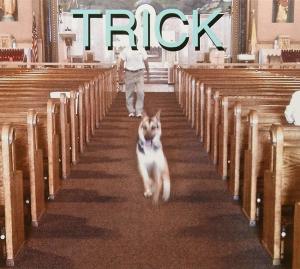
ALEX G: Yeah, that’s accurate.
PHAWKER: So you play every instrument, you play ever part except for the violin or the female backing vocals on the recordings, is that correct?
ALEX G: Pretty much, but I feature my friends on a couple of the songs. Like, I’ll probably forget somebody, but it’s on the liner notes, like, “Walk Away” has my friend Sam Acchione playing electric guitar solo on there, and “Hope” has my friend Tom Kelly playing the drums. There’s other ones, too, I just, I… I’m kinda scatterbrained.
PHAWKER: How do you recreate all the crazy effects, digital manipulations and sonic textures that are on the new album when you play live? Do you just do a more stripped down version of it? Or are you kinda able to recreate it pretty much as it sounds on record?
ALEX G: No, they’re two different experiences, I think. The live stuff we kinda work as a band, for the live show. Once I’m done with the album we’ll all sit down and start practicing these songs, and try out different arrangements. There’s only four of us, so we try out different things like trying to get the essence of the song while obviously not being able to use all the instruments. So if there’s a part where a bunch of synths come in [on the recording], and since we don’t have a synth player we’ll just kick on extra distortion on the guitar, or I’ll do a weird vocal thing to fill in the space.
PHAWKER: Gotcha. You quit Temple after two years to pursue music full time, I’m wondering if music is supporting you, or do you still have to do a day job?
ALEX G: No, I don’t have to do a day job, it’s nice. We tour a lot and that pays the bills.
PHAWKER: Right on, man, congratulations. I’m all for musicians getting paid.
ALEX G: [laughs] Thanks.
PHAWKER: Last question. Tell me about the album cover. All your album covers are really cool, but this — it’s an ice skater painting, a figure skater painting, right?
ALEX G: Yeah, it’s a painting of a figure skater, my sister painted it, actually.
PHAWKER: That’s awesome.
ALEX G: Yeah, she paints all of ‘em. Rachel Giannascoli.
PHAWKER: Okay, that’s really cool. Is she a younger sister or older sister?
ALEX G: She’s older, she’s about nine years older I think. She’s kinda like the reason I know about all this 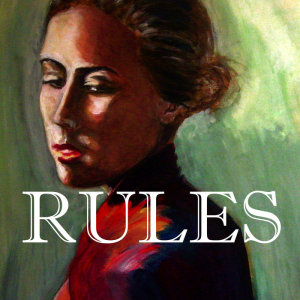 music — like, the reason I grew up listening to Modest Mouse and Elliottt Smith, like all these different bands, like she was — I was kinda stealing CDs out of her room. Or she would play CDs for me, so I trust her taste a lot.
music — like, the reason I grew up listening to Modest Mouse and Elliottt Smith, like all these different bands, like she was — I was kinda stealing CDs out of her room. Or she would play CDs for me, so I trust her taste a lot.
PHAWKER: That’s very cool. I mean is she like a full time painter, is she a professional artist? Or she kinda does it on the side?
ALEX G: No, she has another job. Or she has a job, a day job, but she paints I think, I mean I think it’s a passion, I don’t think I’d be out of line to say that, but she paints not just for me, you know, she’s painting for herself too, other pictures and stuff.
PHAWKER: Please extend my compliments to your sister, I really like her work.
ALEX G: Oh, I will, thanks, I’m glad you think that.
PHAWKER: Last question and I’ll let you go. I like to ask everyone this question. So hypothetical situation: you’re in bed at home, sleeping, middle of the night, there’s a fire, you have to jump out the window. There’s only time to grab one album, what is it and why?
ALEX G: One album…?
PHAWKER: Yes, one LP. I know no one really has albums anymore, or even physical copies, but let’s pretend.
ALEX G: That’s a good question. Right now…
PHAWKER: I wouldn’t think about it too hard, just whatever pops into your head.
ALEX G: I like that Neil Young album Harvest Moon. That’s something I’ve been listening to.
PHAWKER: Beautiful album. Okay, so second part of that question is, what is the last thing you heard that blew you away?
ALEX G: The other day we were driving to Brooklyn, and we put on… apparently there’s The White Album, The Beatles’ White Album outtakes, or something?
PHAWKER: Yes there is.
ALEX G: And I’d never heard it. I’m honestly not even familiar with The White Album or any Beatles record, but those were incredible–
PHAWKER: Yes!
ALEX G: You hear them talking and stuff, and they play this incredible song, but it’s real rough and you hear the creative process — it’s just awesome.
PHAWKER: It is really awesome, they’ve been reissuing and remastering all the Beatles albums, and the guy who produced all those albums was named George Martin– he’s dead now, but his son Giles totally has his father’s ear and he does the incredible new mixes of all the songs from the source material. Plus outtakes and demos and alternate takes. I highly recommend you check out the Abbey Road 50 Anniversary Edition, which is also incredible.
ALEX G: And it has all the outtakes like that?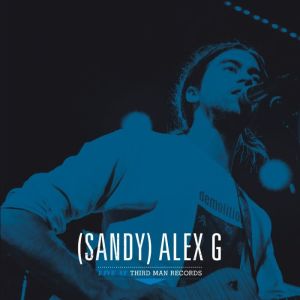
PHAWKER: Has all the outtakes, weird stuff, yeah. I’ll tell you, what’s really interesting about the outtakes is that for years The Beatles never released any of that kinda stuff, so you just always thought of them as like Gods. Like, ‘Jesus Christ, these guys just like shit out brilliant music!’
ALEX G: [laughs]
PHAWKER: But you know, with these outtakes you can actually hear, like, that they had bad ideas too, or they tried out stuff that didn’t work. It wasn’t immaculate conception, it was trial and error.
ALEX G: Right!
PHAWKER: And they’re human, and it’s just, you know, I think it adds to your respect for the brilliance of the music that they eventually put out. There was a lot of effort put into it, but they always made it sound effortless.
ALEX G: Absolutely. Yeah, that was really cool hearing that.
PHAWKER: Alright man, well, promise me you’ll check out Abbey Road, I think it will blow your fucking mind. Thanks for your time, I wish you luck.
ALEX G: Oh, great, thank you. I gotta listen to Abbey Road.
ALEX G + TOMBERLIN + COREY FLOOD @ UNION TRANSFER SAT. NOV. 30TH

